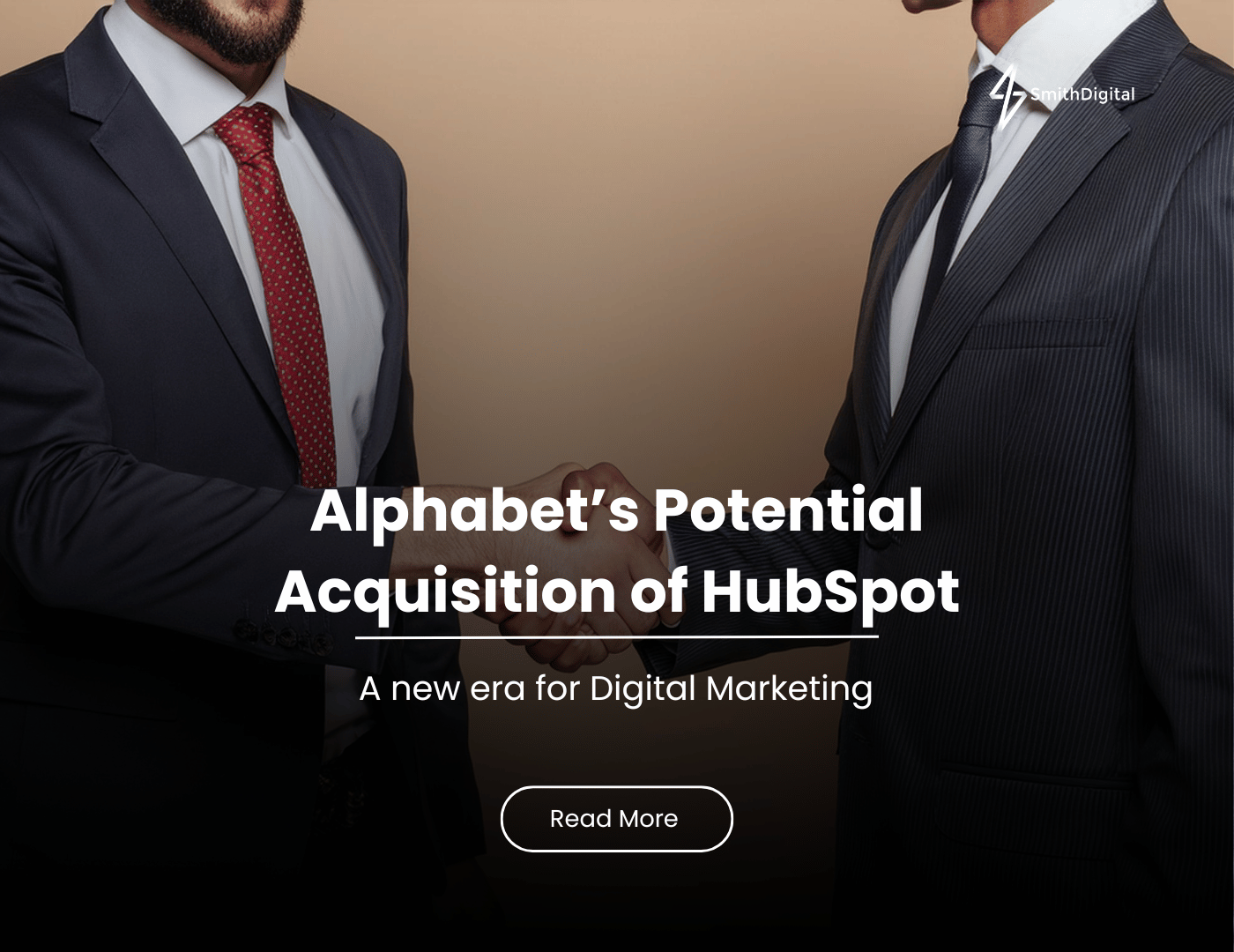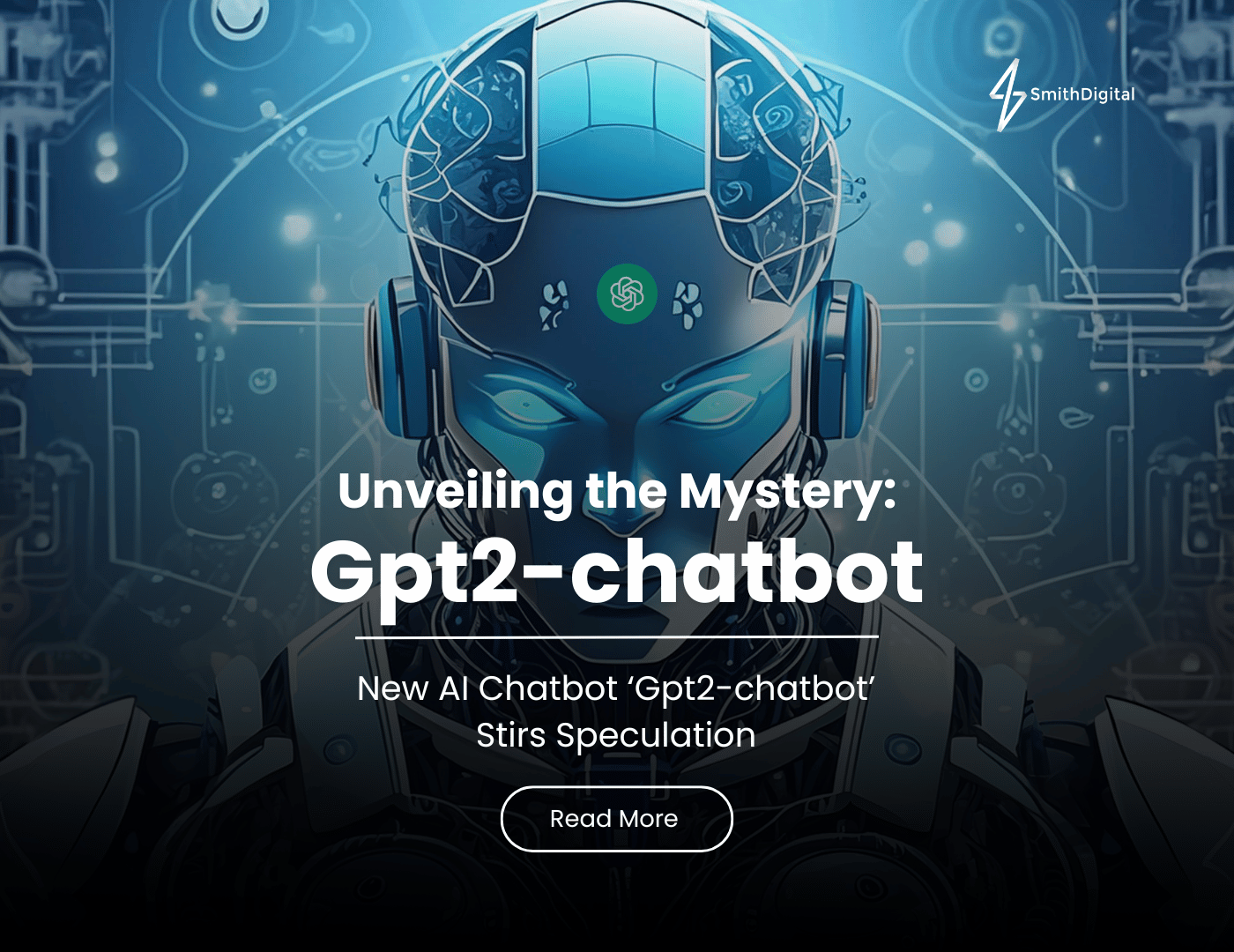New AI Chatbot ‘Gpt2-chatbot’ Stirs Speculation
The newly introduced AI chatbot, Gpt2-chatbot, has generated significant speculation about its potential to rival OpenAI’s GPT-4. Its advanced...
3 min read
Marketing
:
May 1, 2024 8:41:46 AM

Alphabet’s potential acquisition of HubSpot has ignited widespread speculation in the tech industry. This move aims to enhance Alphabet’s cloud computing and business software offerings, aligning with its goals to dominate the CRM and marketing automation spheres. Financially, the deal is poised to demand a significant premium from Alphabet, backed by its $110 billion cash reserves. However, critical attention surrounds the anticipated regulatory scrutiny from U.S., U.K., and EU bodies, concerned about market concentration and competition. This acquisition could drastically reshape the competitive landscape, especially against giants like Salesforce and Adobe. Further exploration uncovers how Alphabet’s strategy might unfold in this high-stakes tech gambit.
Sparked by strategic interests, Alphabet’s consideration to acquire HubSpot began circulating after Reuters reported the tech giant’s potential big move. This revelation comes amidst Alphabet’s search for enhancements in cloud computing and business software solutions, sectors where HubSpot has established significant prowess.
The existing partnership between these two entities underlines a mutual recognition of synergistic potentials, possibly paving the way for a smoother integration process. Alphabet’s history of strategic acquisitions further suggests that this move is aimed at consolidating its market position against competitors like Salesforce and Adobe, who are also key players in the CRM and digital marketing space.
This acquisition could potentially transform Alphabet’s portfolio, intensifying its capabilities in customer relationship management and marketing automation.
In addition, Alphabet’s strategic interest in acquiring HubSpot underscores its ambitions in the CRM and marketing automation space. The financial implications and concerns of such a transaction warrant careful examination.
With a market cap exceeding $33 billion, HubSpot’s acquisition would likely involve a significant premium, potentially making it one of Alphabet’s largest purchases, far surpassing its usual deal size. Alphabet’s cash reserves of $110 billion provide ample capacity for this acquisition, but the company’s recent hint at job cuts and austerity measures suggest a more cautious approach to spending.
Additionally, given the current economic climate, Alphabet must weigh the potential returns against the substantial financial outlay required to secure HubSpot, ensuring the move aligns with its long-term strategic goals.
Traversing the intricate regulatory landscape poses a significant challenge for Alphabet’s potential acquisition of HubSpot. Regulatory bodies in the U.S., U.K., and EU, which have recently scrutinized major tech mergers, will likely conduct a thorough review. Given the size of the deal, surpassing HubSpot’s $33 billion market cap with a premium, concerns about market concentration and competition are inevitable.
Alphabet’s history with large acquisitions, including the failed Adobe-Figma deal, highlights the potential for a rigorous examination. Additionally, any decision to proceed will need to take into account possible termination fees and the broader impact of a hostile regulatory environment. Alphabet’s strategy must be meticulously crafted to navigate these hurdles.
The potential acquisition of HubSpot by Alphabet could greatly reshape the competitive landscape in the CRM and marketing automation sectors. With HubSpot’s robust platform that competes directly with giants like Salesforce and Adobe, Alphabet’s entry could intensify market competition.
If this acquisition materializes, Alphabet wouldn’t only expand its portfolio but also leverage HubSpot’s established market presence to strengthen its foothold in these sectors. Competitors might react by accelerating innovation, seeking partnerships, or even pursuing acquisitions themselves to maintain competitive parity. This could lead to a dynamic shift in market strategies among the leading players.
Analysts are watching closely, as Alphabet’s move could signal a larger strategic shift towards dominating these integral technology spaces.
Alphabet’s history of acquisitions reveals a strategic pattern that emphasizes both expansion and diversification in the tech sector. They’ve consistently targeted companies that bolster their existing services while venturing into new markets. Remarkably, their acquisition of Motorola Mobility for $12.5 billion marked a significant foray into hardware, although they later sold it, retaining valuable patents.
Similarly, buying Nest Labs for $3.2 billion expanded their footprint in smart home technologies. These moves aren’t just about growth; they strategically position Alphabet at the forefront of multiple tech fronts, from AI to consumer electronics, underpinning their market dominance and preparing them for future tech evolutions. This approach reflects a calculated effort to outpace competitors and cater to an ever-evolving consumer base.
Alphabet’s potential acquisition of HubSpot could dramatically reshape the tech landscape, enhancing its position in CRM and digital markets. Given Alphabet’s strong financial standing and existing partnership with HubSpot, the deal seems feasible, yet it faces rigorous scrutiny from regulators wary of tech consolidation.
Should it proceed, this acquisition will likely prompt competitors to reassess their strategies, possibly leading to a ripple effect of mergers and acquisitions in the industry, altering competitive dynamics extensively.

The newly introduced AI chatbot, Gpt2-chatbot, has generated significant speculation about its potential to rival OpenAI’s GPT-4. Its advanced...

When it comes to HubSpot, there are two main ways to get the software: you can either work with a HubSpot partner (liked SmithDigital) or work...

In the tech world, lead generation is everything. With such a competitive landscape, it can be hard to generate leads that turn into conversions....